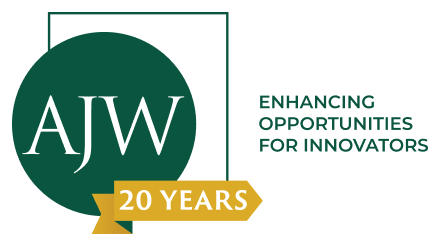Jessica Johnson Bennett is a career government affairs professional with deep experience in legislative affairs, corporate government affairs, renewable fuels, and agriculture, to name just a few of her talents.
We asked Jessica for her insights about the very busy time she has had over her last two years at AJW.
Q: Since you joined AJW in January 2021, there has been historic progress in climate legislation. What impact will these laws have on clean tech moving forward?
These laws are a critical foundation for making progress in renewable energy, clean fuel development, transportation, climate-smart agriculture, pollution mitigation, grid resilience, and more.
The Investment and Infrastructure and Jobs Act (IIJA), the Inflation Reduction Act (IRA), and the CHIPS+ all have provisions that 1) will unlock many opportunities for clean tech and 2) also have bipartisan support, which is so important in a divided Congress.
The certainty of government funding and/or tax credits to support private investment in building out new technology or funding new research and development for nascent technologies is a game-changer for the clean tech industry.
Now, agencies like the Department of Energy, the Department of Agriculture, and the Environmental Protection Agency have the huge task of allocating all of the funding authorized by the IIJA, IRA, and CHIPS+ – and yes, our team is already in the process of advising clients on how to capture their share of it!
So, Congress will only be involved from an oversight standpoint. The law is done and dusted, and the Republicans will likely hold oversight hearings, but interestingly enough, red/Republican states are the ones who are benefitting most from these laws.

Jessica Johnson Bennett discusses government affairs with (from left) AJW’s Mary Solecki, Rich Kassel, Bill Tyndall, and Jordan Flanagan
Q: What are some highlights of the past two years of enhancing opportunities for AJW’s clients?
One thing I love about my work is that by advocating for some, we help advocate for all with similar interests in moving towards cleaner energy and fuels — which benefits everyone across the board.
Being part of the team that is helping exciting start-ups like ClearFlame Engine Technologies, for instance, will positively impact the air people breathe. ClearFlame’s technology can very affordably be used to retrofit diesel engines in the trucking and heavy-duty fleets so they can run on cleaner burning ethanol instead of diesel, which is a much dirtier fuel from an emissions perspective.
This is remarkable because their technology is now successfully demonstrated in their pilot program with trucks on the road. By implementing this exciting technology, we can start reducing air pollution from the heavy-duty sector significantly within years – not decades!
Having smart policies (for clean tech manufacturing; clean fuels policies, etc.) and regulations (for healthy air quality; emissions, etc.) provides certainties for entrepreneurs like B. J. Johnson and Julie Blumreiter and for the investors who believe in their work. This is a really exciting project, and I’m very proud to be a part of the team who supports them.
AJW is also busy spearheading an initiative of a broad group of stakeholders across the clean fuels spectrum: from sustainable aviation to hydrogen to electrification and renewable fuels. The DriveClean initiative supports creating a national, technology-neutral clean fuel standard (CFS) that creates a level playing field for all technologies and focuses on greenhouse gas reductions.
It will take creativity and innovation to get there and there is no single policy that will achieve what needs to be done to reduce harmful emissions. We need to embrace this wide variety of technologies and ideas and begin implementation now.
We need to use some of the tools we already have while we build some exciting new ones. This is a big task, but underpinning this effort with a CFS will also help us move toward national energy independence while doing the critical work of creating a cleaner, greener transportation sector.
There are many other projects I’m proud to be a part of, but that would make this article go on for days, and no one has the time for that!
One other thing I think is important to mention, though. While part of AJW’s work is around advocacy, there is so much more we do as a firm that gives our clients a thorough base of support. We don’t stop at getting someone a meeting. That’s just where the work starts, frankly.
We also help our clients navigate the complicated policy and regulations that affect their business, and the firm has been doing so for twenty years! We have a solid strategic advisory team with a winning history of guiding clients through the process of securing loans, grants, and more.
We have a team devoted to business opportunities in the energy transition, tackling the provisions in the IIJA, IRA, and CHIPS+ to map tax credits, analyzing participation in carbon markets, and advising on acquisitions or market entry opportunities. We cross over and support one another internally with the client’s goals firmly in front of us, and I’m so proud of how the team comes together to give more than 100% across the board.
Q: Looking through your crystal ball, where do you see government and climate intersecting in the next few years?
AJW has been bipartisan since its founding in 2003. Have there been bumps along the way? Of course there have – that’s politics for you.
But we always look for the common ground because that’s where common sense lives. We know lawmakers are passionate about protecting their constituents’ interests and we respect both sides of the aisle for it.
From where I sit today, the Congress will be focused on a variety of issues and an energy package will certainly be part of that. There will likely continue to be a high degree of passion on all sides. From the Executive Branch perspective, the agencies are moving forward and will be very busy implementing the legislation we’ve mentioned. EPA is busy working on various rules affecting air quality and we expect new announcements of proposed changes this spring, with final rules likely late in the year or early 2024. The White House will also be busy doing what it can to achieve the aggressive climate goals it has set out, so expect additional announcements in the coming months.
We also need to remember that states have been very busy implementing their own climate agendas. We all know how active the West Coast has been in this arena (as the partners in our Sacramento office, Mary Solecki and Richard Corey, and their team will attest). But also of note are efforts in New York (where Rich Kassel has been burning the midnight oil), along with Michigan, Maryland, and Massachusetts, to name just a few. The Midwest is a big supporter of renewable fuels and climate-smart agriculture, so there are opportunities on the horizon there, too.
As these opportunities unfold, we will continue to keep showing up and do our best to help the private sector deliver solutions that will help mitigate disasters, improve health outcomes, and protect our communities so we can all breathe easier.
Please reach out if we can help your organization navigate any of these complicated policies or issues!
Outside of AJW, Jessica has learned more about softball and lacrosse than she ever thought possible, as her daughter’s #1 fan in support of her athletic talents. From the halls of government to those fields of dreams, Jessica is always on the move and ready for action.


